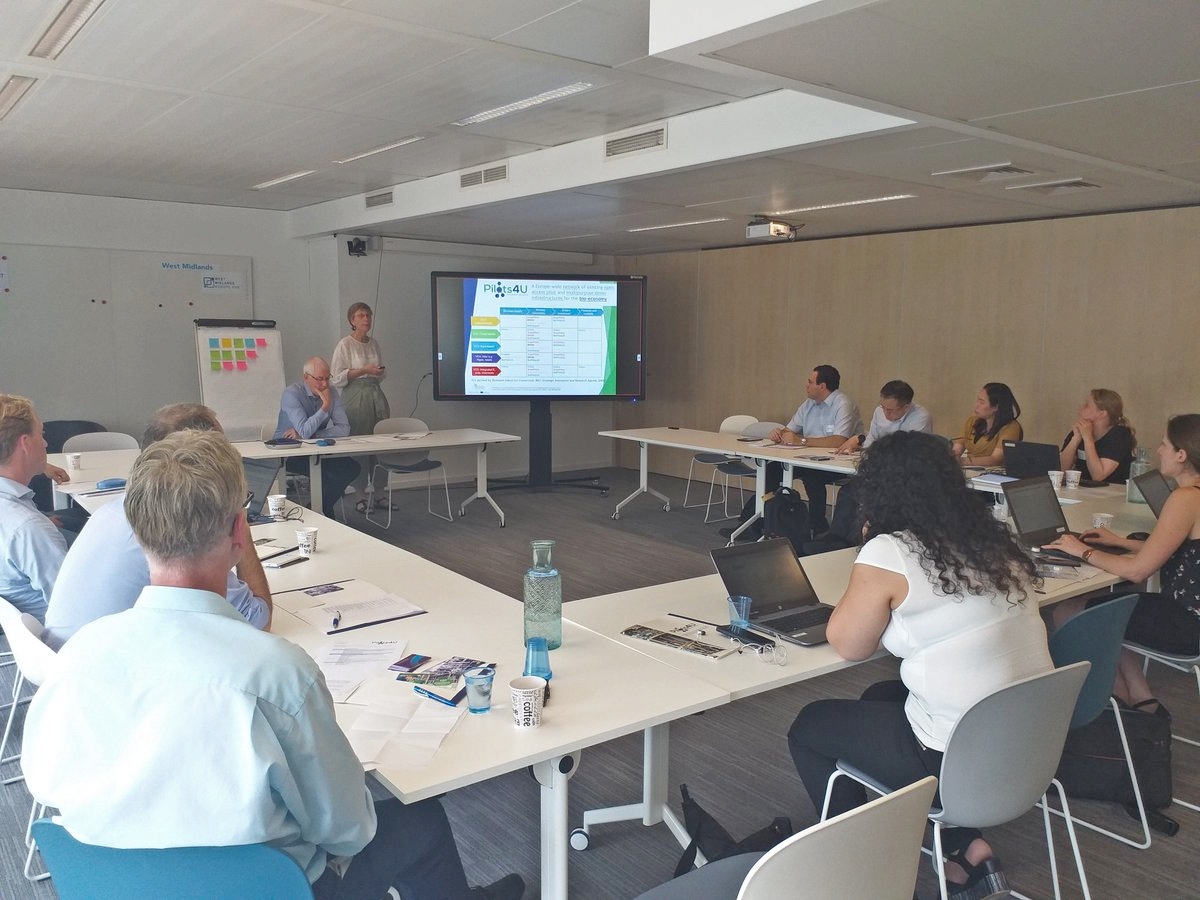
Pilots4U Finance Strategy Roundtable: Strengthening Europe’s open access pilot and demo infrastructure
- 22 August 2019
The Pilots4U project is coming to an end and its last two events, which included a Finance Roundtable and a final event, took place in Brussels on 24th - 25th June.
The aim of the Finance Strategy Roundtable was to validate the business cases developed by the project team, and in particular its financial aspects through discussion with a selection of public and private funding specialists.
Wait, what were the business cases about? Why was the Roundtable necessary? We need a bit of context…
Pilots4U performed a gap analysis exercise to understand where the EU may have under capacity and vulnerabilities now and in the near future. This gap analysis was the result of comparing the Pilots4U database, listing the available pilot and demo infrastructure across Europe, and an industry survey through which potential users were asked what infrastructure and expertise they required from open-access centres. A total of 37 gaps were identified as a result of the gap analysis and these results were validated with a broad range of bio-economy experts in several workshops hosted across Europe. The project team was then able to assess and prioritise the identified gaps and to build a number of business cases that help addressing these gaps while strengthening the European landscape of open-access pilot and demonstration facilities, which will, in turn, contribute to speeding up bio-economy innovation. During the assessment process three distinct types of interventions were identified: 1) investment in equipment, 2) investment in coordination actions and 3) investment in knowledge generation, which were turned into business cases.
OK so, what was said at the roundtable?
The business cases were presented to participants, who gathered expertise in public and private funding options, and who were asked to provide feedback about three key aspects: 1) suitability of cases presented, 2) possible funding sources to convert the business cases into reality, and 3) bottlenecks of these financing sources.
There was general agreement among participants about investment in equipment (1) being required in existing facilities. While ERDF funds have helped building many of the existing open-access centres, participants highlighted that this type of funds only covers part of the cost of the project. Procurement regulations associated with the purchase of equipment through public funding were also discussed, as in some cases the restrictions posed could increase the cost of the required equipment (e.g. procurement regulations state that the equipment to be purchased should be brand new). Binding open-access pilot plants to commercial players was mentioned as an alternative approach to finance very large-scale infrastructure (demonstration and pre-commercial stages) however, some open-access centres present at the roundtable stated that it is their preference not to involve industry in the financing of their equipment to avoid confidentiality and IP issues.
Participants generally agreed about the need to establish collaborative actions between different open-access facilities (2). Nevertheless, it was highlighted that this approach could be challenging, especially when applied to trans-regional collaboration. The option of financing coordination actions as part of a larger research grant-based projects was discussed with participants, as well as the need to generate more trust between open-access centres, as at the moment these type of facilities are competing with each other for funding.
For knowledge generation (3), H2020 and similar national calls were highlighted as the obvious current funding opportunities. However, several issues were raised during the discussion; firstly, participants pointed out the low success rate of these type of calls and the fact that the application process tends to be time consuming; secondly, participants highlighted that the thematic character of this type of funding could be an issue, in particular for emerging technologies, as it takes some time for these technologies to be included in thematic calls.
What’s next? How will the Pilots4U outputs will be exploited?
The business cases will be passed to BBI JU, the funders of the Pilots4U project, along with recommendations for the agency to take future action.
The database created by the project team will remain active! The project partners have realised that the database is a unique tool with great potential, so they have agreed to maintain it for up to a year or until a self-sustaining network is established, so stay tune through our social media channels to find out more!
Comments